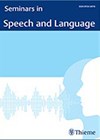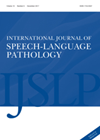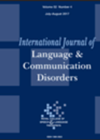
Journal Reviews
Motor learning: better knowing how, not how well
Motor learning is described as the ability to perform a motor skill due to practice and/or experience. Research on interventions to enhance limb motor skills can be influenced through the amount, distribution, variability and schedule of practice as well as...
Sing it, say it, sort it: singing for Parkinson’s disease
Parkinson’s disease (PD) occurs in 1% of the population aged over 60. Changes in voice and speech are among the earliest and most prevalent symptoms of PD; reduced vocal intensity, monopitch, monoloudness, breathy and hoarse voice quality, imprecise articulation, vocal...
Tongue twisters to evaluate speech disorders
This interesting study compared errors in tongue twisters produced by adult patients with dysarthria with those produced by age-matched healthy controls. Audio recordings of all patients while they were vocalising tongue twisters were studied. The authors marked one word prominently...








